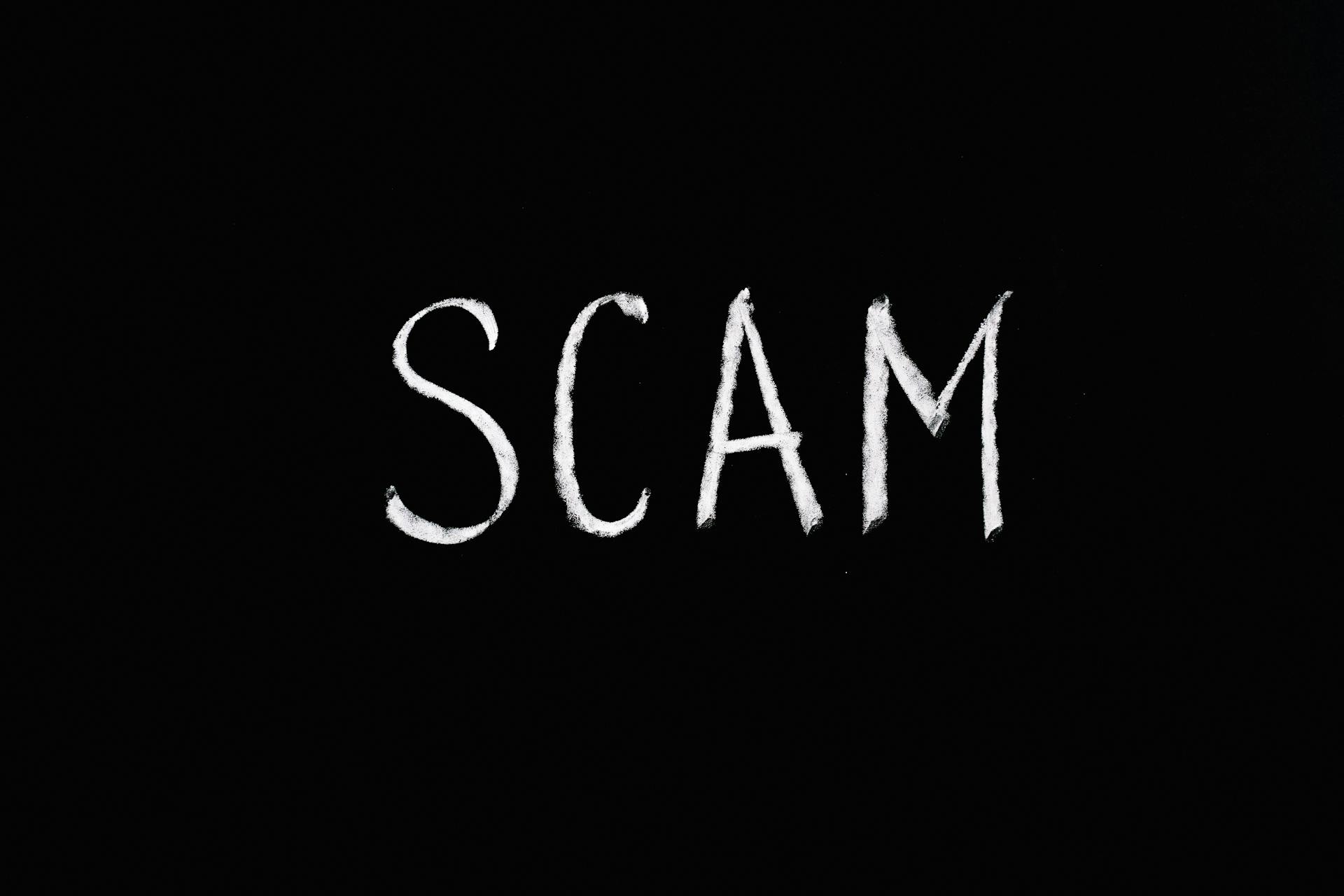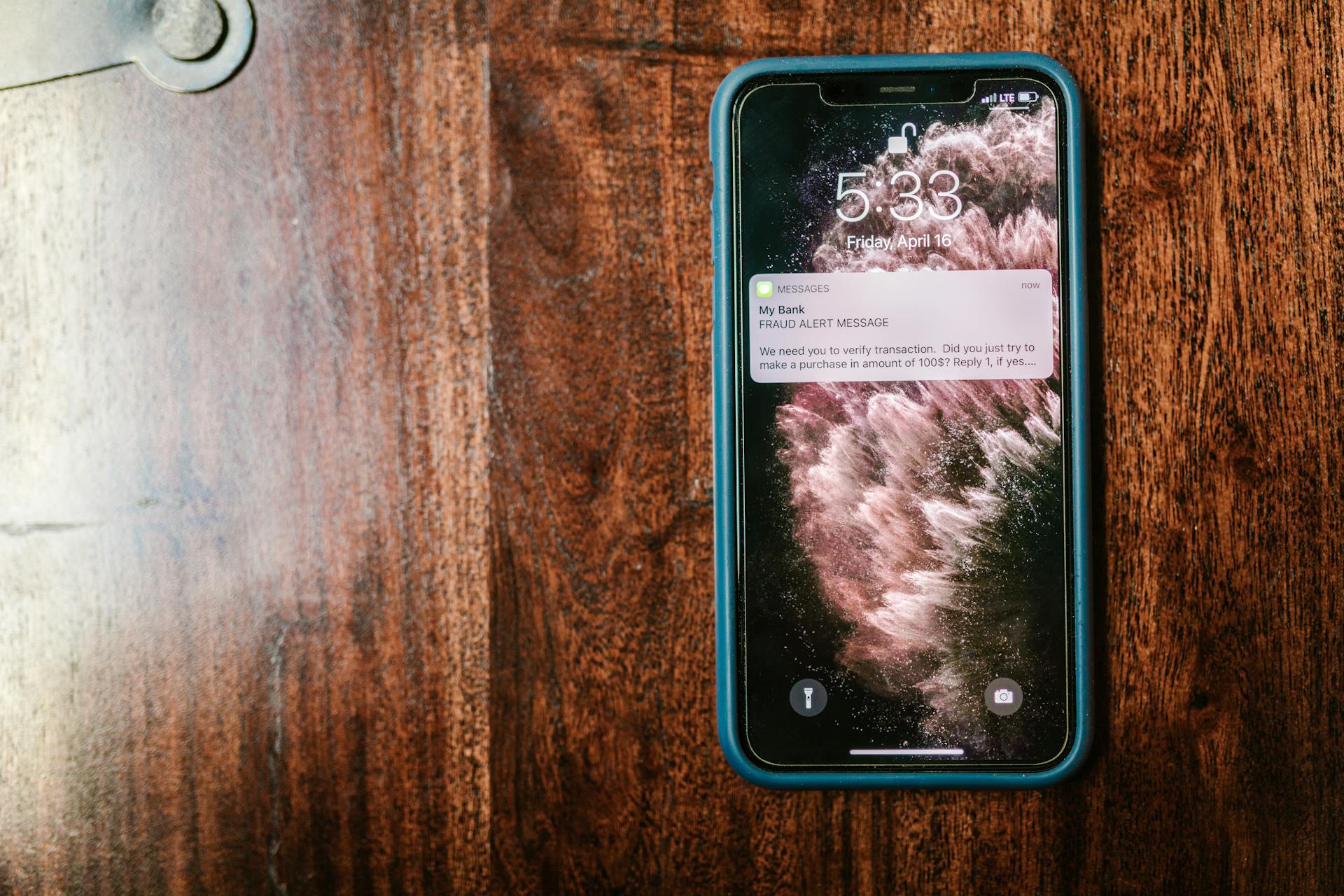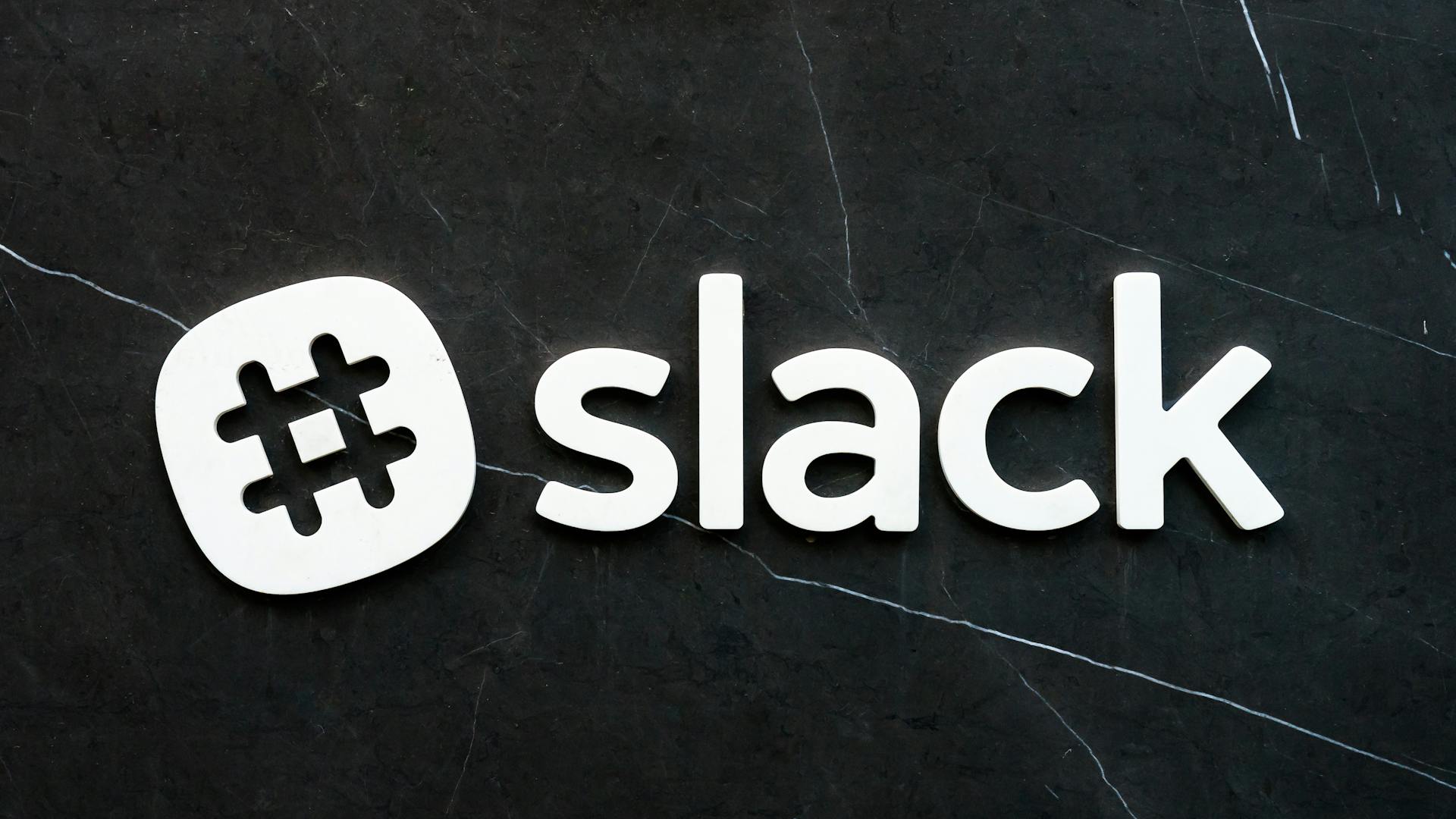
BCBS scams are a serious issue that can have devastating consequences for individuals and families. Scammers often target vulnerable people, such as the elderly or those with pre-existing medical conditions.
BCBS scams often involve fake phone calls or emails claiming to be from Blue Cross Blue Shield (BCBS), attempting to steal sensitive information or money. These scammers can be very convincing, making it difficult for people to distinguish between legitimate and fake communications.
BCBS has reported a significant increase in scam attempts, with over 10,000 reported cases in the past year alone. This highlights the need for caution and vigilance when interacting with BCBS representatives or responding to emails and phone calls.
If you receive a suspicious call or email, it's essential to verify the authenticity of the communication by contacting BCBS directly.
Beware of Scammers
Scammers often impersonate government officials, health insurance agents, or representatives from well-known health insurance companies. They may call or email you, claiming to be from a legitimate organization.
Be cautious of unsolicited contact, especially if they request personal or financial information immediately. Legitimate insurance companies won't pressure you into making snap decisions.
Scammers may try to sell you a fake medical discount plan, charging you a monthly fee for discounts on specific medical services or products. These plans are not a substitute for health insurance and may offer little to no benefits.
Here are five signs you're dealing with a health insurance scam:
- Scammers say they're from the government and need money or your personal information.
- Scammers say you need to pay a fee for a new Medicare card or you'll lose your Medicare coverage.
- Scammers try to sell you a fake medical discount plan.
- Scammers want your sensitive personal information in exchange for a price quote.
- Scammers want you to pay for help with the Health Insurance Marketplace.
Remember, government agencies don't call people out of the blue to ask for money or personal information. If you have a question about Medicare or the Health Insurance Marketplace, contact the government directly: Medicare.gov or 1-800-MEDICARE (1-800-633-4227), or HealthCare.gov or 1-800-318-2596.
If this caught your attention, see: How to Get Insurance to Cover Glp-1
Protecting Yourself
Be suspicious of unsolicited calls asking for your Social Security number, bank account details, or health insurance ID number. Government agencies like Medicare will never ask for payment or personal information over the phone.
Monitor your accounts, credit score, bank, credit card, and other financial information closely. Contact your bank or Credit Card Company if you notice suspicious activity on your account.
To protect yourself from health insurance scams, verify the legitimacy of an insurance provider before purchasing a plan. You can confirm an insurance provider's license through the NC Department of Insurance.
Here are five signs of a health insurance scam to watch out for:
- Scammers say they're from the government and need money or your personal information.
- Scammers say you need to pay a fee for a new Medicare card or you'll lose your Medicare coverage.
- Scammers try to sell you a fake medical discount plan.
- Scammers want your sensitive personal information in exchange for a price quote.
- Scammers want you to pay for help with the Health Insurance Marketplace.
What to Do Next
If you're concerned about a data breach or health insurance scam, it's essential to take immediate action to protect yourself.
Monitor your financial accounts closely, including your bank, credit card, and other financial information. Contact your bank or Credit Card Company if you notice any suspicious activity.
Enroll in services like AllClear ID Pro to help mitigate potential damage. You can sign up at anthemfacts.com.
Be on the lookout for suspicious solicitations or communications, including email "phishing" efforts that may try to collect sensitive information.
On a similar theme: Global Ehic Card
If you're a current or former Anthem customer, review the consumer alerts posted on Anthem's website for specific information about the breach.
If you think you've encountered a health insurance scam, report the fraud to the authorities as soon as possible. Here are some contact numbers to keep handy:
- Report Medicare fraud to the US Department of Health & Human Services Office of Inspector General at 800-633-4227.
- Report general health insurance fraud to the FTC.
- For scams specific to North Carolina, contact the NC Department of Justice at 877-566-7226 (877-5-NO-SCAM).
What to Do Before Signing Up
Before signing up for health insurance, it's crucial to do your research. Visit a trusted source like HealthCare.gov to compare plans, coverage, and prices, as it's the only place where you're guaranteed to get comprehensive, ACA-compliant coverage.
Research any company offering health coverage by searching online for their name along with words like "complaint", "scam", or "fraud." Read reviews and see what others have to say.
To ensure you're dealing with a legitimate company, check if they're licensed by your state insurance commissioner. If they don't have a license, what they're selling isn't insurance. Check with your state insurance commissioner's office to find out.
For another approach, see: Bcbs Company

Don't accept vague answers from salespeople. If they won't give you specific details about the coverage, such as deductibles, co-pays, and finding in-network providers, that's a red flag.
Be cautious of salespeople who say the plan is through a major insurer, but can't verify it. Check with the company to confirm if they're selling plans through a major insurer or not.
Here are some key things to look out for when researching a health insurance company:
- Verify the company's license through your state's insurance department.
- Check online reviews and complaints about the company.
- Make sure the salesperson can provide specific details about the coverage.
- Ask to see a statement of benefits or a complete copy of the policy.
- Verify the company's affiliation with major insurers, if claimed.
By following these steps, you can protect yourself from health insurance scams and make an informed decision about your health insurance plan.
Self-Protection
Protecting yourself from identity theft and health insurance scams requires vigilance and awareness.
Be cautious of emails or calls claiming to be from Anthem or your bank, as scammers may try to capture your personal information. These emails may include a "click here" link for credit monitoring, but they are not from Anthem.
Monitor your accounts, credit score, bank, credit card, and other financial information closely. Contact your bank or Credit Card Company if you notice suspicious activity on your account.
Enroll in the AllClear ID Pro services at anthemfacts.com and contact the California Department of Insurance if you need help or have questions.
Here are five signs of a health insurance scam:
- Scammers say they’re from the government and need money or your personal information.
- Scammers say you need to pay a fee for a new Medicare card or you’ll lose your Medicare coverage.
- Scammers try to sell you a fake medical discount plan.
- Scammers want your sensitive personal information in exchange for a price quote.
- Scammers want you to pay for help with the Health Insurance Marketplace.
Don't click on any links sent to you in an email or via social media, as scammers will try to take advantage of the breach. Also, be aware that Anthem is not calling members regarding the cyberattack and is not asking for credit card information or social security numbers over the phone.
Suggestion: Bcbs Not Paying Claims
Red Flags and Warning Signs
Scammers often use familiar techniques to steal your money and personal information. Government agencies don't call people out of the blue to ask for money or personal information. If someone calls claiming to be from the government, it's a scam.
Scammers will try to sell you a fake medical discount plan, but these plans are not a substitute for health insurance. Some medical discount plans may provide legitimate discounts, but others take people's money and offer very little in return.
Scammers want your sensitive personal information in exchange for a price quote, but legitimate websites like HealthCare.gov only ask for your monthly income and age to give you a price quote. Never enter personal financial information to get a quote for health insurance.
Scammers will try to sell you a fake Medicare card or tell you that you need to pay a fee for a new card, but Medicare will never call out of the blue to say you'll lose coverage. If you have a question about Medicare, contact the government directly.
Here are some common red flags to watch out for:
- Unsolicited offers of "free" health insurance
- Requests for payment via gift cards or wire transfers
- High-pressure sales tactics that push you to act fast
- Unusual fees for things like updating your information or ensuring continued coverage
If you notice any of these signs, it's best to walk away. Scammers rely on creating a sense of urgency to trick their victims into making impulsive decisions.
Protect Your Data
Be cautious of unexpected calls from unknown individuals asking for your personal information, including your Social Security number, bank account details, or health insurance ID number.
Never share your personal information with someone who contacts you unexpectedly, as government agencies like Medicare will never ask for payment or personal information over the phone.
Anthem customers who may have been victims of the breach should enroll in the extra protection offered by AllClear ID, which includes credit monitoring, child identity protection, and identity theft insurance.
You can enroll in these services by visiting anthemfacts.com and clicking on the AllClear ID link, or by calling 877-263-7995.
California Insurance Commissioner Dave Jones advises current and former Anthem customers to enroll immediately in the extra protection and to also enroll their children.
Be aware of phishing scam emails that may try to trick you into providing sensitive information, and do not reply to or open attachments from any emails that include a "click here" link.
If you're unsure about the legitimacy of a call, hang up and reach out to the organization through official channels.
Anthem customers should still be cautious of electronic communications and be aware of phishing scam emails, even if they receive notifications from Anthem about the breach.
On a similar theme: Blue Shield of California Data Breach
Frequently Asked Questions
Is there really a BCBS settlement?
Yes, there is a BCBS settlement, which includes a $2.8 billion cash payment into a settlement fund. Learn more about the details of the settlement and its potential impact on affected parties.
Sources
- https://www.insurance.ca.gov/0400-news/0100-press-releases/anthemcyberattack.cfm
- https://consumer.ftc.gov/articles/spot-health-insurance-scams
- https://www.bluecrossnc.com/blog/insurance-basics/health-insurance-scams
- https://news.blueshieldca.com/2024/06/03/blue-shield-of-california-warns-consumers-about-medicare-scams-and-fraudsters
- https://www.credit.com/blog/watch-out-for-these-blue-crossblue-shield-scams/
Featured Images: pexels.com


